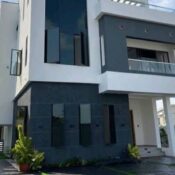
How To Choose The Best Estate For Your Family in Abuja
Finding the perfect home for your family is a significant decision, and when it comes to living in Abuja, Nigeria’s capital, the options can be vast and varied.
Abuja offers a range of estates, each with unique amenities, settings, and community dynamics. This guide will walk you through the key factors to consider when choosing the best estate for your family, helping you make an informed decision tailored to your family’s needs.
1. Identify Your Family’s Needs and Lifestyle
Each family has distinct needs, and understanding these will help you narrow down estates that suit your lifestyle. For example:
Family Size: The number of family members affects the size of home you need. Estates offer a range of housing sizes, from apartments to large family homes, so it’s important to pick an estate that can accommodate your family comfortably.
Work and School Commute: Consider your daily commute to work and your children’s schools. Proximity to major roads and schools will save time and reduce stress.
Preferred Environment: Some families prioritize access to nature, with green spaces and playgrounds, while others prefer urban settings close to shops, restaurants, and entertainment.
2. Consider the Estate’s Amenities and Facilities
Amenities are often a major draw in residential estates. Modern estates in Abuja offer a range of facilities aimed at enhancing convenience, recreation, and safety.
Security: Look for estates with high-security standards, such as gated access, 24/7 surveillance, and security personnel. This is particularly important if you want a safe environment for children.
Recreational Facilities: Family-friendly estates often feature playgrounds, parks, gyms, swimming pools, and sports facilities. Consider whether these facilities align with your family’s recreational habits.
Healthcare and Emergency Services: Proximity to healthcare services and availability of emergency medical assistance is essential, especially for families with young children or elderly members.
Shopping and Essentials: Some estates integrate convenience stores, pharmacies, and other daily essentials into their design, while others may be close to shopping centers.
3. Assess the Estate’s Accessibility and Location
The location of an estate is a major factor affecting lifestyle, convenience, and property value.
Transportation and Road Networks: Estates near major roads or with easy access to public transport will offer a smoother commute. This is especially crucial in a busy city like Abuja where traffic can be unpredictable.
Proximity to Schools and Workplaces: If your children attend specific schools or you have a fixed workplace, find an estate close to these locations. Choosing an estate within 20–30 minutes of these destinations can make daily routines easier.
Neighborhood Development: Abuja has areas in different stages of development. Some estates are located in well-established parts of the city like Maitama, Asokoro, and Wuse, while others are in emerging areas like Lugbe and Galadimawa. A well-developed neighborhood typically has better access to amenities and public services.
4. Evaluate Safety and Security Measures
Safety is a top priority when choosing a place to live, especially for families.
Gated Community Security: Gated estates generally offer added security with restricted access, CCTV cameras, and trained security personnel.
Crime Rates and Reputation: Research crime rates or talk to current residents to learn about safety in the area.
SEE ALSO:
Top 10 Residential Estates in Katampe, Abuja
Top 10 Residential Estates in Durumi, Abuja
Top 5 Residential Estates in Kwaba, Abuja
Top 10 Residential Estates in Wuse, Abuja
Emergency Preparedness: Some estates may have their own fire and emergency protocols or connections to nearby emergency response teams, which can provide added peace of mind.
5. Examine Estate Rules and Policies
Residential estates in Abuja may have specific policies that impact day-to-day living. Familiarize yourself with these to avoid surprises after you move in.
Noise and Privacy Policies: Some estates enforce noise control policies, which can help create a peaceful environment.
Pet Policies: If you have pets, ensure that the estate allows them and has provisions for their care.
Maintenance and Service Fees: Many estates charge maintenance fees to keep facilities running smoothly. Check what these fees cover and evaluate if they are reasonable for the services provided.
6. Understand the Financial Commitment
Buying or renting a home in an estate is a significant financial commitment. Budgeting wisely and understanding the costs can prevent financial strain.
Cost of Purchase or Rent: Compare the prices of homes in different estates and consider the cost per square meter. Estates in high-demand areas like Maitama, Asokoro, and Wuse may have higher prices.
Service and Maintenance Fees: Beyond purchase or rental costs, check for service charges. Higher-end estates often have monthly or yearly maintenance fees, which cover services like security, gardening, and utilities.
Investment Potential: Property values in well-maintained estates generally appreciate over time. If you’re considering resale value, opt for an estate with a reputation for quality management.
7. Evaluate the Estate’s Long-Term Development Potential
Some estates are part of larger planned communities, with future developments in the pipeline.
Infrastructure and Roads: Estates in developing areas may promise new roads, schools, or healthcare facilities in the future. This can add value to your property and improve your quality of life.
Community and Social Engagement: Estates with active residents’ associations often foster a strong sense of community, which is particularly beneficial for families.
FAQs on Choosing The Best Estate for Your Family in Abuja
What is the average cost of housing in Abuja’s estates?
Housing costs in Abuja vary widely depending on the estate and location. High-end areas like Maitama, Asokoro, and Wuse can have properties priced from ₦50 million and above for purchase, with rentals averaging ₦3 million or more annually.
More affordable estates in areas like Lugbe and Karu offer a range of options at lower prices.
Are there kid-friendly estates in Abuja?
Yes, several estates cater specifically to families, offering playgrounds, parks, schools, and child-focused amenities. Estates like Pinnock Beach Estate and Crown Court offer child-friendly facilities, making them great choices for families with young children.
Is it better to buy or rent in an Abuja estate?
This depends on your financial situation and long-term plans. Buying can be a good investment if you plan to stay for several years, as property values in Abuja generally appreciate. Renting offers flexibility and lower upfront costs, which may suit expatriates or families new to the city.
How do I verify the security level of an estate?
It’s advisable to ask estate management about their security arrangements, including personnel, CCTV, and visitor protocols. Talking to residents can also give you a clearer idea of security conditions.
What additional costs should I expect in an estate?
Besides purchase or rental costs, many estates charge monthly or yearly service fees to cover shared facilities, utilities, and maintenance.
Final Thoughts
Choosing the best estate for your family in Abuja involves balancing convenience, safety, amenities, and financial considerations.
By identifying your family’s unique needs and assessing each estate’s offerings, you’ll be well-prepared to find a home that provides both comfort and long-term value.
Take your time to research, visit potential estates, and consult residents or real estate professionals. With a thoughtful approach, you can secure an ideal home that will support your family’s growth and happiness for years to come.



